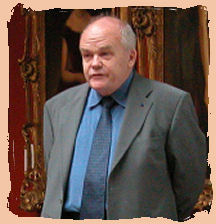by Tom Blees
Shortly after the publication of Prescription for the Planet in 2008, I got a call from a scientist in Russia named Evgeny Velikhov. He’d read my book and wanted to know if I would be interested in being a member of an international committee of energy experts who determine the winners of the Global Energy Prize. I’d never heard of it, only discovering then that it’s analogous to a Nobel Prize, but for energy research, and awarded by Russia every year. Velikhov had always encouraged international scientific cooperation even at the height of the Cold War.
As a close advisor and friend to Mikhail Gorbachev, Velikhov conceived and initiated ITER, the International Thermonuclear Experimental Reactor project. As a plasma physicist whose first scientific love was fusion research, he understood how much energy, brainpower, and money it would take to even hope to harness fusion power. He concluded that it would make more sense for nations to work on it together than to attempt those scientific hurdles individually. He convinced Gorbachev to propose ITER to Reagan at a summit in Geneva and then spearheaded the ITER project, which is ongoing today, with its building project in France.
ITER was but one of many important projects and ideas that Velikhov pursued throughout a long career as a scientist and political participant in the turbulent world of Russian politics. Over the last fifteen years, we became fast friends. He joined us in Las Vegas in 2010 when a host of scientists and other collaborators met for a “Summit in the Sand” in the early days of SCGI. In 2012 he was a special guest at SCGI’s international conference on fast reactor technology at U.C. Berkeley. In those years before the Russian invasion of Ukraine—which troubled him deeply—Velikhov was instrumental in encouraging cooperation between our countries.
His intention behind the ITER project was clear: To provide unlimited clean energy for humankind. He connected with SCGI because he realized that our goals in that regard were synonymous and that the fast-neutron reactors that SCGI was championing could achieve that goal, most probably more readily and realistically than fusion. In our last meetings in Moscow in 2019, before the pandemic terminated our in-person visits, he was very excited about the Thorcon project that SCGI’s been involved with in recent years. Velikhov had figured out a way to produce abundant fuel for such molten salt reactors and was hoping that Thorcon could provide the ship-borne power plants and Russia could provide the fuel. Alas, that notion of global cooperation came to naught when Russia invaded Ukraine.
On December 5, Evgeny Velikhov passed away, just two months shy of his 90th birthday. He led an extraordinary full life. On one of our visits when he came to Washington, D.C. several years ago, I suggested to him that he write his autobiography. He replied that he’d already started it, and showed me a draft of it on his laptop. Once it had been published, I found a Russian physicist (who happened to live across the street from me in California) who was “honored” to translate it into English. The resulting book, Strawberries from Chernobyl, can be downloaded here if you’d care to have a window into the life of an exceptional character.
Putin’s decision to invade Ukraine has cast a pall on Russia and colored perceptions of Russians in general in a negative light. Yet most Russians, like people elsewhere, are decent people with aspirations and desires similar to most of ours. Thanks to Dr. Velikhov, I’ve had the opportunity to develop lasting friendships with some wonderful Russian citizens. It is with a heavy heart that I bid him farewell. It has been my honor and privilege to be his friend.

